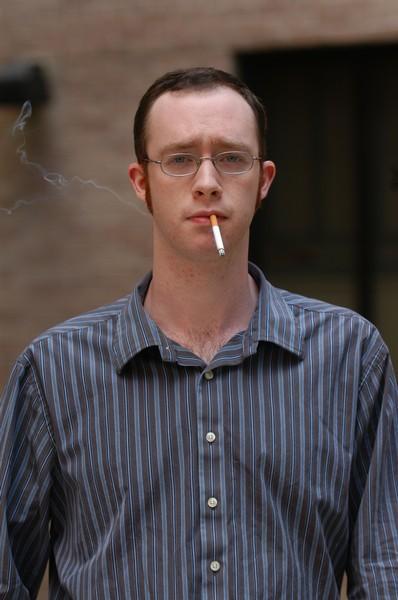A year ago yesterday I received a text message as I was leaving The Daily Reveille offices. My friend Eli, at the time an employee in the library, wrote, “Hunter S. Thompson killed himself.”
It took another 20 minutes to get confirmation on the television and already I was churning through, after the shock wore off, how best to celebrate the life of a man whose talent and audacity I admired and whom I revered.
Writers, like generals, often die in bed. Only the rare few – Ambrose Bierce in his lonely march to certain death in Mexico and Hemingway’s fatal meeting with a shotgun in his Ketchum, Idaho, home – stand out as exceptions to that rule, as does Thompson’s fatal meeting with his .45 in his kitchen.
Early in Thompson’s career he wrote an article on Ernest Hemingway’s death. The title, which I have paralled in my headline, was “What drove Hemingway to Ketchum?” What is it that drove both of these men, both talented writers as well as larger than life public figures to the business end of firearms? What drew these men to death’s embrace?
We can only speculate – a decline in health was evident in both. Thompson suffered from all sorts of ailments and spent a good deal of time in a wheelchair; an old body, which had once been described like that of a linebacker, was slowly crumbling at 67 because of years of abuse of booze, drugs and cigarettes. Hemingway’s mental state was collapsing at the time to the point where his last books were slowly becoming more and more retreads on earlier themes. The truth is both were revered figures who couldn’t bear another moment on earth.
Thompson gave us, along with the likes of Tom Wolfe and Gay Talese, the theory of “new journalism” in which the reporter becomes an active participant in the story. In Thompson’s case, he was not above throwing in composite characters or mixing up some fiction with fact to hit at what he saw as the greater truth. Whatever one views of such a field – I tend to prefer and use solely in this paper only the facts at hand – it lent a spice to Thompson’s work that it might not have had.
And, my God, spice was the best way to describe his work. Say what you like against him, save any attack on his work. What a master of the English language! His final “salute” to Richard Nixon rivals H.L. Mencken’s “memorial” to William Jennings Bryan. He was a man who “could shake your hand and stab you in the back at the same time,” and deserved to “have been launched into one of those open-sewage canals that empty into the ocean just south of Los Angeles,” as Thompson wrote in Rolling Stone in 1994.
But I believe more than anything, Thompson got America right. He has been described as part cynic, part Huck Finn. The 1960s, the high point of both recent American idealism and radicalism impacted his life like few others. Indeed he, almost alone among the prominent figures of that decade, never “grew up.” He remained a personal anarchist with a mix of beliefs from the left and the right of the spectrums, maintaining true allegiance only to himself. His words in “Fear and Loathing in Las Vegas,” spoken memorably by Johnny Depp in the film version, sum up a deep sadness for a culture irredeemably betrayed and broken; young men and women who lost faith in the institutions of our country and then inevitably those who led them from them.
These folks are “a generation of permanent cripples, failed seekers, who never understood the essential old-mystic fallacy of the Acid Culture: the desperate assumption that somebody … or at least some force – is tending the light at the end of the tunnel.”
Compare it to the end of “The Great Gatsby,” “So we beat on, boats against the current, borne back ceaselessly into the past,” or, hell, even Journey’s “Don’t Stop Believin,” and you have the American dream – a desiccated crushed one but a dream nonetheless.
Thompson has died, but his spirit remains. His successor in spirit, it seems, is Matt Taibbi at Rolling Stone, who combines a deep and abiding scorn for the way our political system works with a command of the English language that while not yet rivaling Thompson, may someday come close. Thus the tradition continues, and a few plow the barren fields of the eternal opposition, always burning, as Lord Byron would say.
Ryan is a history senior. Contact him at opinion@lsureveille.com
What drove Hunter to Aspen, Colorado
February 21, 2006

Raising a generation of cowards



